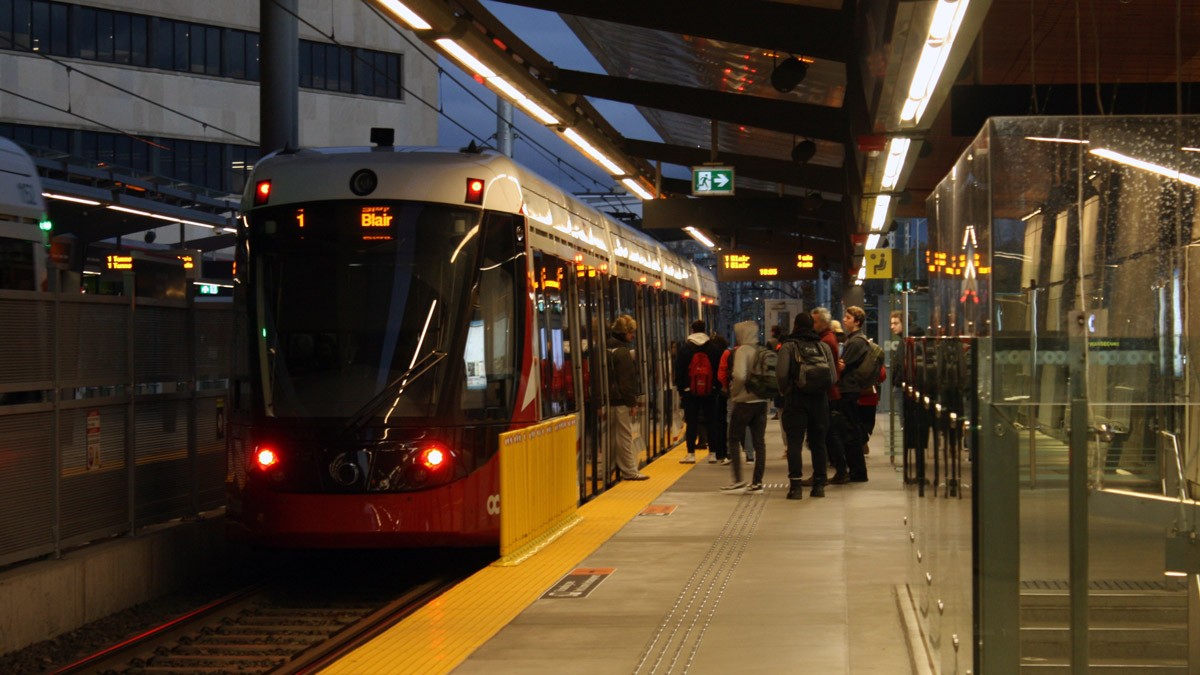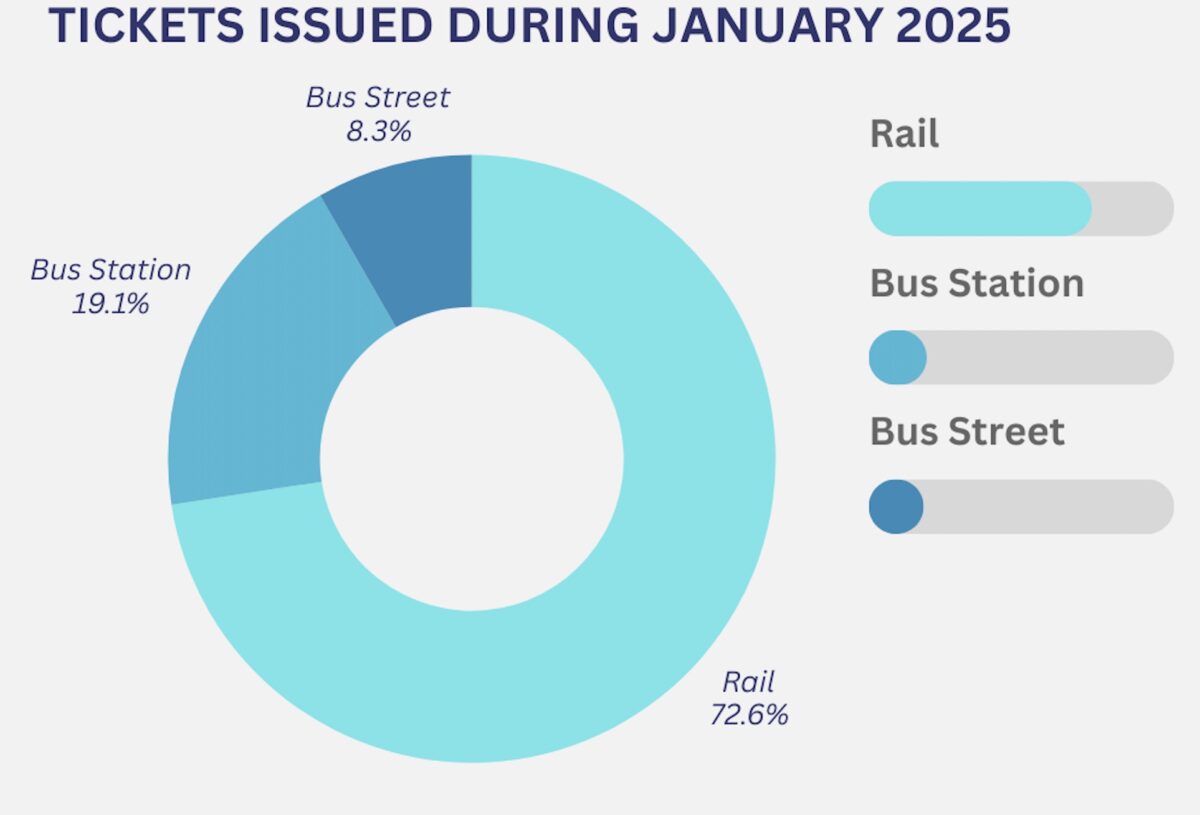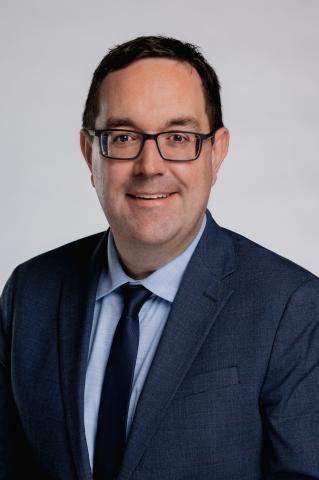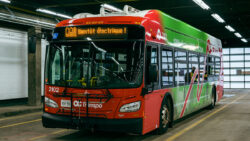An Ottawa advocate for free transit says an OC Transpo crackdown on riders who evade paying their bus or LRT fare is unfairly punishing low-income people who can’t afford to use the city’s troubled transit system.
In a report presented recently to the transit committee, OC Transpo detailed the levels of fare evasion in the city and its approach to enforcing payment and dealing with violators.
The transit service has 12 fare enforcement officers. The fine for riding the transit system without paying the fare is $260.
More than 4,300 tickets were issued on buses and at bus and LRT stations in 2024. About 30 per cent of the tickets were paid on time, 11 per cent were paid later and subject to additional fines and 59 per cent of tickets remained unpaid. Payments from 2024 have so far generated more than $350,000 in revenue.
“Fare revenue is a vital component of the funding model for transit in Ottawa,” the report stated. “Fare enforcement also ensures the integrity of the fare system and equity amongst transit customers.
“Overall, staff project that ongoing fare compliance activities will increase fare revenues by ensuring customers pay the appropriate fare, continue to mitigate violence against operators and contribute to transit users’ overall sense of safety while using the transit system.”
If you can’t afford $4, you’re certainly not going to be able to afford to pay over $200.
— Marie Nigro, Free Transit Ottawa
OC Transpo faces a $120 million budget shortfall in 2025, which is prompting a stepped-up crackdown on fare evasion. Enforcement fines are expected to bring in more than $1 million in 2025. The budget for fare enforcement — which supports deterrence of violations and enhances overall system security, OC Transpo says — is set at just more than $1.25 million for 2025.
Stittsville Coun. Glen Gower, chair of the transit committee, said the fare compliance initiative was shaped by concerns and feedback shared by bus operators and drivers, who say they are concerned about the number of violations they see.
“We’re trying to make sure that people are paying the fare as they should when they’re boarding a bus or getting up on the train,” Gower said.
But Marie Nigro, with Free Transit Ottawa, said riders in Ottawa can be more reluctant to pay for fares if service keeps getting cut.
On April 27, OC Transpo will close 27 bus routes and 15 will be replaced by others. This is part of the agency’s “A New Way to Bus” network, which OC Transpo says will focus on providing more frequent service to neighbourhoods around the city and stronger links to LRT stations.

“Riders are probably just feeling used and the fares keep going up and up,” Nigro said. “But we’re getting less and less.”
Nigro said people struggling financially are more likely the ones skipping out on fares. She also said the penalty for not paying is “extremely high.”
“If you can’t afford $4, you’re certainly not going to be able to afford to pay over $200,” Nigro said.
She said that if the city wants people to use transit more and evade fares less, they should make a transit system in which Ottawa residents can feel pride.

“If they are going to keep the fare system, (they should) make it worthwhile for the riders to feel like this is something that is worth paying for and do more consultations with the public,” Nigro said.
Free Transit Ottawa describes itself as “a diverse group of environmental and social justice activists who believe that public transit has a crucial role in combating climate change and promoting social justice.” The group argues “public transit should become a public service that is provided free of charge to users similar to the way public education, medical care, fire services — and roads and sidewalks — are provided. It should be financed through progressive taxes levied on the basis of ability to pay.”
For people who might have trouble paying the transit fare, said Gower, there are a number of reduced-fare programs the city offers to make transit as affordable as possible.
We’re trying to make sure that people are paying the fare as they should when they’re boarding a bus or getting up on the train.
— Stittsville Coun. Glen Gower, transit committee chair
These programs include U-Pass partnerships with universities in Ottawa, EquiPass for people with lower income, as well as community and access passes. Gower says the city also provides newcomers and refugees with free transit as they settle in Ottawa.

Ana Clara Miranda Guimaraes, vice-president of research and advocacy with the Carleton University Students’ Association, said CUSA has worked hard to advocate for students’ on transit issues.
Last fall, said Guimaraes, OC Transpo had proposed a five per cent increase on university transit fares. It was not implemented but Guimaraes says the hike would have increased the number of students evading transit fares.
Along with the cost-of-living crisis facing students, Guimaraes said, making transit affordable for students is a top priority for the association.
”If they’re already paying extreme amounts for housing, the cost of education and transit fares go higher,” said Guimaraes, “It’s only a matter of time until they stop respecting those fares, because it’s just not feasible.”
Gower said fare inspectors have discretion when it comes to handing a ticket or a warning. He also said that the increased presence of fare enforcement officers can make transit feel safer for all riders.
“Having that extra personnel around, not just to track fares, but (to offer customer and safety) assistance is really important, as well,” Gower said. “In fact, they’ve been out there and they’ve helped people who might be experiencing an overdose and who need assistance right away.”





The way I see it, if you went to a restaurant and the food was an hour late and cold…you wouldn’t expect to pay full price. Why are transit users expected to pay top dollar for a system that often does not work as advertised?
Do I understand correctly that, even though OCTranspo is operating at a deficit and is raising fare prices, it also spends more on fare enforcement than it even hopes to recoup? Please tell me that I’ve misunderstood something here.